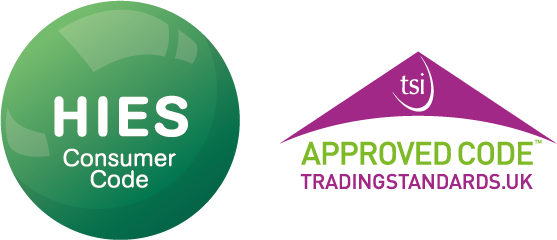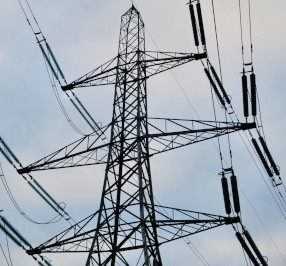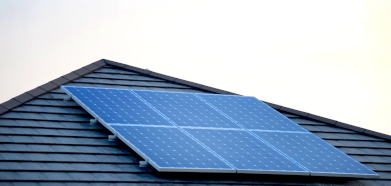Are There Any UK Tax Breaks or Incentives for Solar Energy?
UK Tax Breaks or Incentives for Solar Energy: Essential Steps for Longevity
 Tax Breaks and Incentives
Tax Breaks and Incentives
In the United Kingdom, the government recognizes the importance of solar energy and has implemented various tax breaks and incentives to encourage its adoption. This article explores two key incentives provided by the UK Government for solar energy: capital allowances and feed-in tariffs.
In recent years, solar panels have gained significant traction as a renewable and sustainable source of power. As more individuals and businesses turn to solar energy to reduce their carbon footprint and lower their energy costs, it’s become more important than ever to understand the financial benefits associated with this technology.
So, are there any UK tax breaks or incentives for solar energy? There are a few different incentives that the UK Government has established to encourage both individuals and businesses to invest in solar technology. Let’s go over what they are:
Capital Allowances
Capital allowances are a form of tax relief designed to encourage investment in specific assets, including solar energy systems. In the UK, solar energy installations qualify for two types of capital allowances: the Annual Investment Allowance (AIA) and the Special Rate Pool.
The Annual Investment Allowance (AIA) allows businesses to claim 100% tax relief on qualifying capital expenditure in the year of purchase. The AIA threshold is set at £1 million, so businesses can deduct the full cost of their solar energy systems, up to £1 million, from their taxable profits in the year of installation. This generous allowance significantly reduces the payback period for solar investments, making them more financially viable.
Solar energy installations also qualify for the Special Rate Pool, which provides businesses with tax relief on a percentage of the capital expenditure. Solar energy systems fall into the category of “integral features,” along with other assets like thermal insulation and air conditioning. Businesses can claim writing down allowances at a rate of 6% on the cost of these integral features. Although the relief is spread over several years, it still provides a valuable financial benefit and further enhances the return on investment for solar energy projects.
Feed-in Tariffs
As well as capital allowances, the UK Government offers a feed-in tariff (FiT) scheme, which enables individuals and businesses to generate income from their solar energy systems. The FiT scheme was introduced in 2010 and provides financial incentives for generating renewable electricity, including solar power.
Under the FiT scheme, participants receive two separate payments:
- Generation Tariff: This payment is based on the total amount of electricity generated by the solar energy system, regardless of whether it is used on-site or exported to the grid. The tariff rate depends on the system size, technology type, and installation date. These payments are tax-free and guaranteed for 20 years, adjusted annually in line with the Retail Price Index (RPI).
- Export Tariff: Participants also receive an export tariff for surplus electricity exported to the grid. This is an additional payment on top of the generation tariff. The export tariff assumes that 50% of the electricity generated is exported unless the participant has a smart metre, in which case the export is measured and paid based on actual export.
It is worth noting that the FiT scheme closed to new applicants on March 31, 2019. However, existing participants can continue to receive payments for the agreed duration of their contracts. The closure of the FiT scheme indicates a shift towards alternative support mechanisms for renewable energy, such as the Smart Export Guarantee (SEG), which enables participants to sell excess electricity to suppliers at market rates.
Alternative Solar Power Incentives
There are also a few other alternative solar power incentives in the UK that focus more on homeowners instead of businesses, so let’s take a look at those:
Energy Company Obligation (ECO4)
The UK has moved onto the Energy Company Obligation 4 (ECO4) scheme in 2022 and it will run until 2025. This new scheme looks to invest £4 billion to help improve energy efficiency across UK homes as part of the Energy Company Obligation (ECO). For many homeowners, this includes receiving grants for free solar panel installation.
This isn’t a universal scheme, unfortunately, and the funds are provided at the discretion of local councils. They typically earmark these funds and grants for low-income households, so you’re more likely to receive these grants if you’re using child benefits, income support or housing allowance.
Smart Export Guarantee
The Smart Export Guarantee (SEG) is another programme that looks to help homeowners fund solar panel installations. This scheme began in 2020 and gives homeowners the opportunity to export their excess energy production back into the national grid to receive remuneration.
This isn’t a scheme devised by the UK Government, although they have been involved in its development. For example, they’ve encouraged energy providers to offer customers the ability to export energy for payment.
VAT Reduction
Finally, the UK Government has set up a VAT reduction for individuals who are purchasing solar equipment and installation over the next 5 years. This is a zero-rate VAT reduction that removes the previous 5% VAT on these purchases. This gives homeowners the opportunity to make savings when it comes to installing solar panels for homes.
Investing in Solar Energy in the UK Pays Off
The UK Government recognizes the importance of solar energy as a renewable and sustainable power source. To encourage its adoption, various tax breaks and incentives have been introduced to make solar energy investments more financially viable. With these tax breaks and incentives in place, investing in solar energy becomes an attractive option for individuals and businesses in the UK. Not only does it contribute to a greener and more sustainable future, but it also provides financial benefits and opportunities for income generation. As the renewable energy sector continues to evolve, it is important to stay informed about the latest developments and explore new support mechanisms that may emerge in the future.
If you’re ready to reap the benefits of solar energy for your property, contact us at World of Solar today.


 It Only Takes a Minute
It Only Takes a Minute















